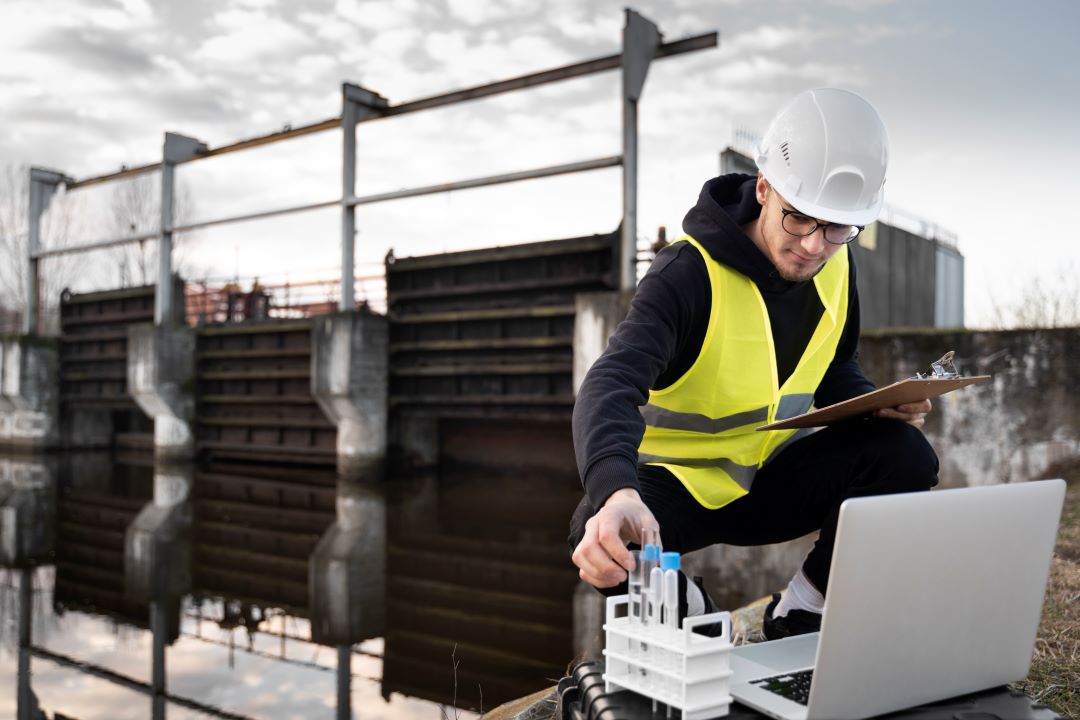The maritime industry is under increasing pressure to reduce its environmental impact. With increased concerns about climate change and reducing greenhouse gas emissions, finding innovative solutions to minimize the environmental impact of maritime operations has become paramount.
One way to achieve this is through modular inverters for sustainable maritime operations.
6 Techniques to Use Modular Inverters for Sustainable Maritime Operations
Harnessing the power of these industrial power inverters is essential for sustainable maritime operations. Here are six ways to leverage them for a greener maritime future:
1. Shore Power Connectivity
With these industrial power inverters, you can connect the ships to the electrical grid at ports and turn off their diesel generators during their stop. It reduces fuel consumption, emissions and eliminates noise pollution.
Moreover, it also improves the air quality and overall environmental impact of port operations.
2. Improved Power Quality
They can enhance the power quality onboard ships through a stable and reliable power supply. These inverters can regulate voltage levels, compensate for fluctuations, and mitigate harmonics and other power quality issues.
The inverters also minimize the risk of equipment damage and enhances the overall safety of maritime operations.
3. Renewable Energy Integration
The inverters convert the DC power of renewable sources into usable AC power, allowing the vessel to use clean energy for various applications onboard. It reduces reliance on fossil fuels, lowers emissions, and contributes to a more sustainable maritime industry.
4. Energy Storage
You can combine the inverters with energy storage systems. Use them to store excess power in batteries from renewable sources or during low-demand periods to use during peak loads.
It reduces the need to run auxiliary engines, resulting in fuel savings, reduced emissions, and increased operational efficiency.
5. Smart Grid Connectivity
The inverters enable ships to connect to smart grids, opening up opportunities for grid-to-ship power supply and bidirectional power flow. Ships with these inverters can return surplus power to the grid when docked, acting as floating power stations to support local energy systems.
This integration enhances grid stability, reduces strain on existing infrastructure, and promotes the utilization of renewable energy resources.
6. Sustainability
Their modular design allows for easier maintenance, repair, and upgrading of components, extending their lifespan and reducing electronic waste. These industrial power inverters are often made with sustainable materials and designed for energy efficiency, further contributing to their environmental benefits.
Challenges of Using Modular Inverters For Sustainable Maritime Operations
While these inverters offer numerous benefits for sustainable maritime operations, there are also some challenges to using them:
Higher Initial Investment
Implementing them requires an upfront investment in purchasing the equipment, installation, and necessary infrastructure upgrades. This initial cost is challenging for some maritime operators, especially smaller vessels or companies with limited financial resources.
Space Constraints
Ships often have limited space available for equipment installation. Inverters and associated components, such as batteries or renewable energy sources, require additional space allocation.
Finding suitable locations for installation becomes challenging, especially on older vessels or those with pre-existing infrastructure.
Technical Expertise
Their installation, operation, and maintenance require specialized technical knowledge and expertise. So, maritime operators may need to invest in training their personnel or seek external support for proper installation, integration, and ongoing maintenance.
Compatibility and Standardization
The maritime industry is highly diverse, with vessels of different sizes, ages, and technical specifications. Ensuring compatibility and standardization of industrial power inverters across various types of ships is difficult.
Harsh Maritime Environment
The marine environment poses additional challenges for equipment durability and reliability. Exposure to saltwater, humidity, vibration, and temperature variations can affect the performance and lifespan of these inverters.
Investing in top-tier modular inverters perfect for maritime operations helps overcome these challenges. Our experts at Exeltech provide customized solutions that overcome these benefits so that you experience their multifaceted benefits.





